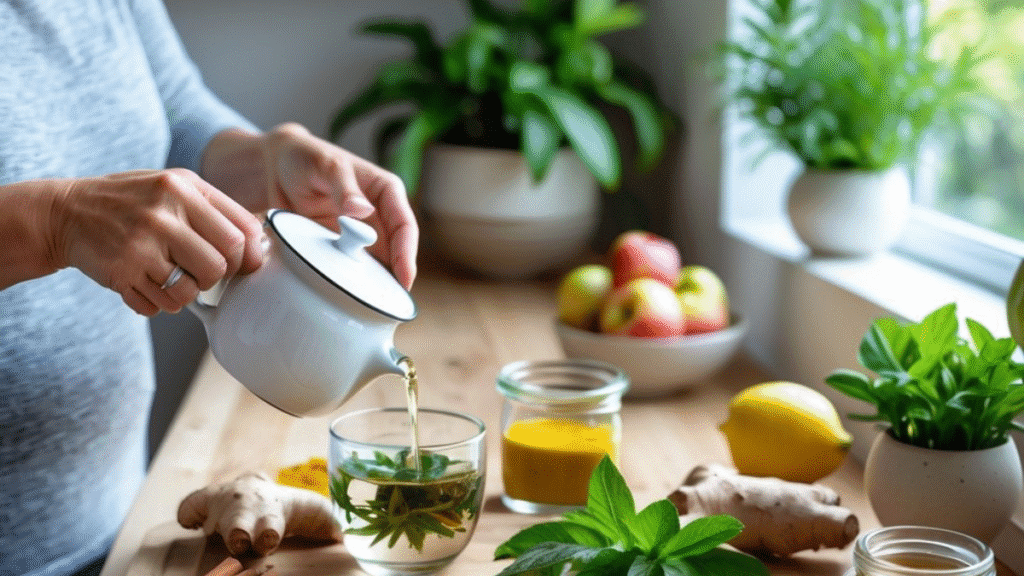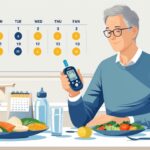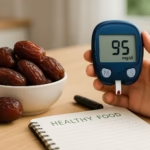High blood sugar is a huge problem for millions around the globe. If you let it go unchecked, it can cause some pretty serious health issues down the line.
Plenty of people look for options beyond medication—or just want something safe and doable at home to support their current treatment.
Natural remedies can genuinely help control blood sugar levels. They work through dietary tweaks, herbal supplements, and lifestyle changes that boost insulin sensitivity and improve how your body handles glucose.
Exercise, stress management, and eating more fiber have all been shown to help people keep their blood sugar in check naturally.
The real trick? Figuring out which natural approaches actually work—and how to use them safely alongside any meds you’re already taking.
From kitchen spices to simple daily habits, there are evidence-backed ways to support blood sugar without relying only on prescriptions.
Key Takeaways
- Natural approaches like diet changes, herbs, and lifestyle tweaks can support healthy blood sugar at home
- Knowing how different foods and supplements affect glucose helps you make smarter choices
- Mixing regular exercise, stress reduction, and good sleep with targeted natural remedies creates a stronger approach to blood sugar control
Understanding Blood Sugar Regulation

Blood sugar regulation is surprisingly complicated. Insulin lets your cells use glucose for energy, but a bunch of things can throw off this balance and push your sugar levels too high.
Diabetes is the most common blood sugar disorder. Still, even your daily habits at home can cause spikes if you’re not careful.
What Is Blood Sugar and Why It Matters
Blood sugar is just glucose floating around in your bloodstream, fueling your cells. The body tries to keep these levels tightly controlled using insulin and glucose metabolism.
Normal fasting blood sugar falls between 70-99 mg/dL. After you eat, blood sugar goes up for a bit—then insulin steps in and helps cells absorb that glucose.
Key Blood Sugar Measurements:
- Fasting glucose: Blood sugar after 8+ hours without food
- HbA1c: Average blood sugar over 2-3 months
- Post-meal levels: Blood sugar 1-2 hours after eating
High blood sugar slowly damages blood vessels and organs. It also ramps up oxidative stress, which just isn’t good for your cells.
Poor blood sugar control can lead to heart disease, kidney damage, and nerve issues. Even slightly high levels raise your risk.
Types of Diabetes and Blood Sugar Disorders
Type 2 diabetes changes how your body handles glucose. It’s about 90-95% of all diabetes cases.
This type develops when your cells stop responding to insulin or when your pancreas can’t keep up with insulin production.
Type 2 Diabetes Characteristics:
- Insulin resistance in muscle, fat, and liver cells
- Insulin production drops over time
- Usually starts in adults over 45
- Linked to obesity and inactivity
Type 1 diabetes is different. Here, the immune system attacks insulin-producing cells, so people with this type need insulin shots to survive.
Prediabetes means your blood sugar is higher than normal, but not quite at diabetes levels. Fasting glucose for prediabetes runs between 100-125 mg/dL.
Many folks with insulin resistance actually show normal fasting blood sugar, but their levels spike after meals. This often moves toward type 2 diabetes if nothing changes.
Common Causes of High Blood Sugar at Home
Diet is usually the biggest culprit behind blood sugar spikes at home. Refined carbs and sugary foods send your glucose soaring and overwhelm your body’s ability to handle it.
Common Dietary Triggers:
- White bread, pasta, and rice
- Sugary drinks and snacks
- Big portion sizes
- Too many carbs at once
If you don’t move much, your muscles use less glucose. That means more sugar hangs out in your blood.
Chronic stress boosts cortisol, which pushes blood sugar higher. Bad sleep habits also mess with hormones and glucose control.
Lifestyle Factors:
- Sitting for hours
- Less than 7 hours of sleep
- High stress
- Not enough water
Certain meds, like steroids, can bump up blood sugar. Illnesses and infections do it too, since your body releases more glucose to cope.
Dietary Changes for Blood Sugar Control

The food you pick matters—a lot. Foods high in protein, fiber, and micronutrients help keep blood sugar steady, and some food combos work together to prevent those nasty spikes.
Importance of Low Glycemic Index Foods
Low glycemic index foods let glucose trickle into your bloodstream slowly. That way, you avoid sudden spikes that make your body scramble to respond.
Anything with a glycemic index under 55 is considered low. Think most veggies, legumes, and some fruits like berries and apples.
- Non-starchy veggies (broccoli, spinach, peppers)
- Legumes (lentils, chickpeas, black beans)
- Berries (blueberries, strawberries, raspberries)
- Nuts and seeds
High glycemic foods (like white bread and soda) spike your glucose fast. If you have diabetes, it’s best to keep these to a minimum.
Pairing low glycemic foods with protein or healthy fats slows things down even more. You end up with steadier glucose throughout your meal.
Fiber-Rich Foods for Glycemic Control
Fiber is a game changer for blood sugar. It slows down how fast your body absorbs carbs—especially soluble fiber, which turns into a gel in your gut and delays glucose entry.
Most adults should aim for 25-35 grams of fiber each day, but honestly, most people don’t even get half that.
- Vegetables: Artichokes (10g/cup), Brussels sprouts (4g/cup)
- Fruits: Pears with skin (10g each), apples with skin (5g each)
- Legumes: Navy beans (19g/cup), black beans (15g/cup)
- Whole grains: Quinoa (5g/cup), oats (4g/cup)
Soluble fiber especially helps lower those post-meal spikes. Oats, barley, and citrus fruits are good picks for this.
Start slow with fiber to avoid stomach issues. And drink plenty of water—it really helps fiber do its job.
Role of Whole Grains, Lean Proteins, and Healthy Fats
Whole grains keep the grain kernel intact, so you get more fiber and nutrients than with refined grains. That extra fiber slows glucose absorption and helps with blood sugar control.
Beneficial Whole Grains:
- Brown rice instead of white
- Quinoa (lots of protein, too)
- Steel-cut oats over instant
- Whole wheat pasta in moderation
Lean proteins help level out glucose by slowing down how fast you digest carbs. Plus, they help you feel full without raising blood sugar.
- Fish (salmon, sardines, mackerel)
- Poultry (chicken breast, turkey)
- Plant proteins (tofu, tempeh, legumes)
- Eggs and low-fat dairy
Healthy fats help, too—they slow down digestion and support blood sugar control. Monounsaturated and omega-3s are the winners here.
Heart-Healthy Fat Options:
- Avocados and olive oil
- Nuts and seeds (almonds, walnuts, chia seeds)
- Fatty fish with omega-3s
Mixing whole grains, lean protein, and healthy fats at every meal keeps your energy and glucose more stable. It’s a simple, effective strategy.
Powerful Natural Remedies and Herbs

Some natural compounds, like cinnamon and fenugreek seeds, can boost insulin sensitivity and slow glucose absorption. Apple cider vinegar’s acetic acid can help reduce those annoying post-meal spikes, and bitter melon or okra offer plant-based support for healthy glucose metabolism.
Cinnamon and Glycemic Balance
Cinnamon’s polyphenols help your muscle and fat cells respond better to insulin. Eating 1-6 grams a day may lower fasting blood sugar by 10-29%—not bad for a spice you probably already have.
Cinnamon acts a bit like insulin itself, helping cells soak up glucose. Ceylon cinnamon is the safer bet over cassia, since it’s lower in coumarin (which isn’t great for you in large amounts).
Daily Usage Guidelines:
- Powder: 1/2 to 1 teaspoon with meals
- Capsules: 500mg twice daily
- Tea: Steep 1 stick in hot water for 10 minutes
Try cinnamon in oatmeal, yogurt, or smoothies. The blood sugar-lowering effect usually kicks in within 1-2 hours and can last up to 12 hours.
Benefits of Fenugreek and Fenugreek Seeds
Fenugreek seeds have soluble fiber that slows down how fast your body digests carbs and absorbs glucose. They’re also packed with 4-hydroxyisoleucine, an amino acid that nudges your pancreas to make more insulin when your blood sugar creeps up.
Some studies say eating 10 grams of fenugreek seeds daily can drop fasting blood glucose by about 13%. The seeds come with antioxidants and flavonoids, which help shield pancreatic cells from damage.
Preparation Methods:
- Soak 2 teaspoons of seeds in water overnight
- Drink the water and chew the softened seeds first thing in the morning
- Grind the seeds into powder and mix with warm water
Fenugreek’s glucose-lowering effects seem to work best if you take them about half an hour before eating. The fiber also helps you feel full longer, which is a nice bonus for anyone watching their weight.
Apple Cider Vinegar (ACV) and Acetic Acid Effects
Apple cider vinegar contains 4-8% acetic acid, which helps your body respond better to insulin and slows down glucose production in your liver. If you take ACV before meals, it can cut post-meal blood sugar spikes by up to a third.
The acetic acid slows how quickly your stomach empties, so food moves more gradually into your intestines. This means your blood sugar rises more gently, without those big jumps.
Recommended Usage:
- Mix 1-2 tablespoons in 8 ounces of water
- Drink it 15-30 minutes before meals
- Start with 1 teaspoon to see how your stomach handles it
Always dilute ACV to protect your teeth and stomach. The natural blood sugar management benefits work best if you pair it with a meal that has protein and healthy fats.
Bitter Melon, Okra, and Plant-Based Support
Bitter melon comes loaded with compounds that mimic insulin, helping your cells soak up glucose more efficiently. The fruit’s got charantin, vicine, and polyphenols—these all support healthy glucose metabolism.
Okra’s soluble fiber turns into a sort of gel in your gut, slowing down how fast your body absorbs sugar. Plus, it contains antioxidants like quercetin and catechins that protect against the oxidative stress high blood sugar can cause.
Plant-Based Options:
- Bitter melon: Drink 2-4 ounces of juice daily or add it as a cooked veggie
- Okra: Eat 6-8 pods a day or make okra water
- Preparation: Soak sliced okra in water overnight and drink the liquid in the morning
These natural home remedies for blood sugar control pack in multiple beneficial compounds without any synthetic stuff. The antioxidants help dial down inflammation, which can make insulin resistance worse if you let it fester.
Supplements and Functional Foods
Some supplements and functional foods can make a real difference for blood sugar. Mg & chrom. work directly with insulin, while certain botanicals and probiotics offer extra metabolic support.
Magnesium and Chromium in Blood Sugar Management
Magnesium plays a huge role in glucose metabolism and insulin sensitivity. People with diabetes often have low magnesium, which makes blood sugar harder to manage.
Taking magnesium supplements may help your cells use glucose better. The mineral also supports proper insulin signaling.
Daily magnesium requirements:
- Men: 400-420 mg
- Women: 310-320 mg
You can find magnesium in leafy greens, nuts, seeds, and whole grains. Most supplements offer 200-400 mg per dose.
Chromium supplements might improve insulin sensitivity and glucose metabolism, but research on chromium shows mixed results. Some studies show modest improvements in blood sugar, while others don’t see much change.
Chromium picolinate is the form most people study. Typical doses fall between 200-400 mcg daily.
If you have kidney disease, steer clear of chromium supplements. Always talk to your healthcare provider before adding new supplements.
Aloe Vera, Berberine, and Evidence-Based Botanicals
Aloe vera juice contains compounds that might lower blood sugar. Some studies say aloe vera can improve fasting glucose and HbA1c, but results vary.
Fresh aloe gel or standardized juice work best. Start with a small amount—aloe can upset your stomach if you’re not used to it.
Berberine is one of the most researched supplements to lower blood sugar naturally. It works a lot like metformin, improving how your body responds to insulin.
Berberine benefits:
- Reduces fasting glucose
- Improves insulin function
- May lower HbA1c levels
Most people take 500-1500 mg of berberine daily, split into 2-3 doses with meals. Watch out for digestive issues and possible interactions with other meds.
Other evidence-based botanicals include cinnamon extract and alpha-lipoic acid. They support glucose metabolism in different ways.
Role of Probiotics and Vitamin C
Probiotics can help with blood sugar by improving gut health and lowering inflammation. Certain strains help regulate glucose metabolism and improve insulin sensitivity.
Beneficial probiotic strains:
- Lactobacillus acidophilus
- Bifidobacterium bifidum
- Lactobacillus casei
Some research says probiotics might lower fasting glucose and help with insulin resistance. Multi-strain formulas with 10-50 billion CFUs daily seem most promising.
Fermented foods like yogurt, kefir, and sauerkraut give you natural probiotics. Supplements offer higher doses and specific strains if you want to get more targeted.
Vitamin C acts as an antioxidant and might help reduce diabetes complications. High blood sugar increases oxidative stress, and vitamin C helps fight that off.
Some studies suggest vitamin C supplements can help with glucose control in people with diabetes. Typical doses are 500-1000 mg daily.
Vitamin C also helps your immune system and supports wound healing, which can be tricky with diabetes. You’ll find it in citrus fruits, berries, and bell peppers.
Lifestyle Habits That Support Healthy Blood Sugar
Three big lifestyle habits make a difference for stable glucose: regular exercise boosts insulin sensitivity and glucose uptake, proper stress management keeps cortisol from spiking your blood sugar, and good hydration helps your body regulate glucose naturally.
Exercise and Physical Activity Strategies
Regular exercise is hands down one of the best ways to manage blood sugar. When you stay active, your muscles use more glucose and your body responds better to insulin.
Aerobic exercise—think brisk walking, cycling, or swimming—helps your muscles soak up glucose efficiently. A combo of aerobic workouts and strength training gives the best results, with studies showing solid improvements in diabetes management.
Strength training twice a week builds muscle, which acts as a glucose sponge. More muscle means your body can handle more glucose during and after workouts.
Post-meal walks are surprisingly effective. Just 10-15 minutes of walking after eating can keep your blood sugar from spiking by helping your muscles use up the available sugar.
Exercise timing makes a difference, too. Morning workouts can boost insulin sensitivity all day, while evening sessions help process dinner glucose more smoothly.
Aim for 150 minutes of moderate aerobic exercise per week, plus two strength training sessions. This combo keeps your glucose levels in check and supports long-term management.
Stress Management and Sleep Quality
Chronic stress makes your body pump out cortisol, which raises blood sugar and messes with insulin. Managing stress with specific techniques can help keep your glucose steady.
Deep breathing exercises kick in your parasympathetic nervous system, reducing cortisol and letting insulin do its job.
Meditation for 10-15 minutes a day can lower stress hormones that spike blood sugar. It also helps with overall stress management and metabolic health.
Sleep quality matters a lot for blood sugar. Poor sleep makes your body less sensitive to insulin and increases hunger hormones that make you crave sugar.
Adults need 7-9 hours of steady sleep each night for healthy glucose regulation. If you don’t get enough, your blood sugar can spike just like it would after a sugary snack.
Good sleep hygiene means sticking to a regular bedtime, cutting screen time before bed, and keeping your room cool and dark. These habits help your body respond better to insulin.
Staying Hydrated for Metabolic Health
Staying hydrated helps your kidneys flush out extra glucose and supports insulin response. Water helps remove excess sugar through urine and keeps dehydration from making blood sugar spikes worse.
Most adults need 8-10 glasses of water a day. If you let yourself get dehydrated, your blood glucose can get concentrated, making it harder to control.
Spread your water intake throughout the day for steady metabolism. Drinking water before meals can help with portion control and glucose management, too.
Herbal teas offer hydration without added sugars. Green tea, in particular, may even improve insulin sensitivity and glucose use.
Skip sugary drinks—they spike blood sugar fast. Stick with plain water, unsweetened teas, or water with a slice of cucumber or lemon for the best hydration.
Frequently Asked Questions
People have tons of questions about managing blood sugar naturally. The most common ones focus on which foods help most, proven herbs and spices, exercise routines, supplements with solid research, lifestyle tweaks, and how to stay hydrated the right way.
What are effective dietary changes to help lower blood sugar levels?
Choosing foods with a low glycemic index can keep blood sugar from spiking. Low GI foods like bulgur, barley, oats, beans, and lentils all score 55 or lower on the scale.
Adding fiber to your meals slows sugar absorption. High fiber foods—veggies, fruits, legumes, whole grains—help your blood sugar rise more gradually. You can check out more on blood sugar levels if you’re curious.
Portion control really matters. Using smaller plates, eating slowly, and actually measuring your food can all help you avoid glucose spikes after eating.
Counting carbs lets you plan meals more effectively. Since your body breaks down carbs into glucose, keeping an eye on your intake from whole grains and unprocessed sources gives you better blood sugar control.
Which herbs and spices are scientifically proven to help regulate blood sugar levels?
Cinnamon might help with blood sugar by boosting insulin sensitivity. It can also slow down how fast carbs break down in your gut. This spice seems to keep blood sugar from spiking after meals, though honestly, we could use more solid research here.
Berberine looks promising for lowering blood sugar. Some studies say it helps break down glucose and encourages your tissues to use more sugar. Still, we’re waiting for more data.
Fenugreek seeds might help manage blood sugar, but honestly, we need better human studies before saying much more.
Apple cider vinegar could help by slowing how fast your stomach empties after eating. There’s a 2014 study suggesting it might prevent those annoying blood sugar spikes.
Can regular exercise contribute to stabilizing blood sugar levels, and if so, what types are best?
When you exercise, your insulin sensitivity goes up, so your cells use glucose more efficiently. Your muscles also burn more blood sugar for energy and contraction.
If you’re short on time, quick workouts fit into busy days. Three ten-minute sessions a day, five days a week, can hit that 150-minute target.
Breaking up long periods of sitting with “exercise snacks”—like light walking or resistance moves every half hour—really helps keep blood sugar steady.
Weightlifting, brisk walks, running, biking, dancing, hiking, swimming, and even jumping jacks—all of these work. Any movement is better than just sitting around, right?
Are there any scientifically-backed supplements that assist in maintaining healthy blood sugar levels?
Chromium helps your body process carbs and fats. It might boost insulin’s effectiveness and support blood sugar balance, and you’ll find it in foods like beef, chicken, whole grains, and almonds.
Magnesium is pretty important for blood sugar, too. People who eat magnesium-rich diets tend to have a lower diabetes risk, while low magnesium can make insulin less effective.
You’ll get magnesium from dark leafy greens, pumpkin seeds, tuna, whole grains, dark chocolate, and avocados. If you eat enough of these, you probably don’t need a supplement.
Probiotics might also help with blood sugar control. Taking several types for at least eight weeks seems to make a real difference.
What lifestyle modifications can someone implement to naturally manage their blood sugar at home?
Managing stress matters for blood sugar. When you’re stressed, your body pumps out glucagon and cortisol, which raise your blood sugar.
Exercise, meditation, deep breathing, and even journaling can help lower stress. Yoga or mindfulness might even help people with diabetes fix insulin issues.
Getting enough good sleep makes a big difference. Most adults need 7 to 8 hours of solid sleep each night to keep their blood sugar in check.
Keeping your weight in a healthy range also helps. Just losing 5% of your body weight can improve blood sugar and might even mean less medication.
What role does hydration play in controlling blood sugar levels, and what fluids are recommended?
When you stay properly hydrated, your kidneys can flush out extra sugar through urine. Drinking enough water keeps blood sugar from creeping up and helps you avoid dehydration.
Researchers in 2021 noticed that folks who drank more water faced a lower risk of high blood sugar. Regular water intake seems to rehydrate your blood and might help lower glucose levels.
For hydration, water and zero-calorie drinks really are your best bet. Sugary drinks? Best to skip them, since they can spike your blood sugar and bump up your diabetes risk.
Honestly, plain water is still the go-to for managing blood sugar. If you’re looking for some variety, unsweetened tea, sparkling water, or drinks without added sugars or artificial sweeteners work too.




Pingback: Is Beetroot Good for Diabetes? Health Impact, Glycemic Index & Benefits - Pharma Heals
Pingback: Syringe for Insulin: Essential Guide to Proper Selection and Usage in 2025 - Pharma Heals